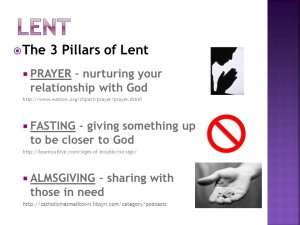I love Easter. I enjoy coming together with other believers and worshipping Christ. I can’t wait to sing “Christ, the Lord, Has Risen Today,” or “Up From the Grave He Arose,” and “Crown Him with Many Crowns.” To this day these lyrics make me cry. Easter brings a powerful message of hope to a hurting world. We want everyone to know what Christ did for us on the cross and share His victory over death through His resurrection. But what about our family members or friends who have drifted away from God or don’t know Christ as their Savior?
As much as I enjoy the Easter celebration, I struggle with sadness for those who are wandering through life far from God. I worry about those who profess Christ outwardly, but haven’t stepped into a saving relationship with Him. I hurt for those who don’t recognize how spiritually lost they are and don’t think they need Jesus. There are some who know there is a better life, but don’t know how to get there. Jesus is the only One who can fill the void in their heart. How can we reach them to join us for Easter? The Lord gave me a thought that won’t go away: God wants them to come home. Here are a couple of passages and a hymn that came to mind that we can use to encourage our loved ones.
The Story of the Prodigal Son (Luke 15:11-32)
I think of this story for friends and loved ones who are “drifters.” A father had two sons, and the younger one asked for his share of the estate. The father granted his request. The son took his early inheritance and promptly squandered it in a distant country. He became broke and hired himself out to work in the field and feed pigs. He envied the food the pigs were eating! He came to his senses and realized that his father’s hired hands had food to spare, while he was starving. He made a plan. He said, “I will say to him, ‘Father, I have sinned against heaven and against you. I am no longer worthy to be called your son; make me like one of your hired hands.’”
When the son set out to return to his Father, “his Father saw him from a long way off and was filled with compassion for him. He RAN to his son, threw his arms around and kissed him.” His father wanted his son to come home! The father felt overwhelmed with joy at the return of his son, so he celebrated by preparing a feast for him. Let’s pray for our loved ones who are drifting that they will know how deeply their perfect Father in heaven wants them to come home.
The Parable of One Lost Sheep (Luke 15:3-7)
I think of this story for friends and loved ones who are spiritually lost. Jesus told a story in front of a large crowd that included Pharisees and teachers, along with the tax collectors and “sinners.” Jesus described this scenario. “Suppose one of you has a hundred sheep and loses one of them. Does he not leave the ninety-nine in the open country and go after the lost sheep until he finds it? And when he finds it, he joyfully puts it on his shoulders and goes home. Then he calls his friends and neighbors together and says, ‘Rejoice with me; I have found my lost sheep.’ I tell you that in the same way there will more rejoicing in heaven over one sinner who repents than over ninety-nine righteous persons who do not need to repent.” Isn’t this a beautiful picture of our heavenly Father? He cares for any lost sheep. He has a heart of compassion, especially for those who are outside of the fold. He will go to any length to find a lost sheep and bring it home. When a lost person repents, notice that our Father REJOICES. Do we have the heart of our Father? Are we doing everything possible to locate lost sheep to help them find their way home?
Finally, there is a beautiful hymn that says it all:
“Softly And Tenderly”
Softly and tenderly Jesus is calling,
Calling for you and for me.
See, on the portals, He’s waiting and watching;
Watching for you and for me.
[Chorus:] Come home, come home,
Ye who are weary come home;
Earnestly, tenderly, Jesus is calling; Calling,
“O sinner, come home!”
O for the wonderful love He has promised,
Promised for you and for me.
Though we have sinned He has mercy and pardon;
Pardon for you and for me.
How can we make Easter special for our loved ones and friends who are far from God. How can we help them know that God wants them home? Let’s not let the Easter celebration slip by us. We have a wonderful opportunity to start inviting others to join us. I’d love to hear your thoughts below.
Blessings,
Lee Ann








